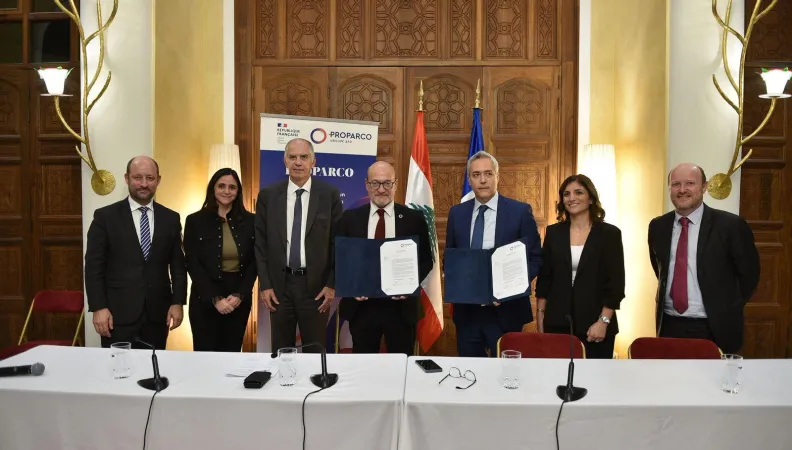Share the page
Proparco and Vitas Lebanon strengthen their commitment to financial inclusion for MSMEs in Lebanon
Published on

Proparco and Vitas Lebanon sign a Memorandum of Understanding (MoU) for a third portfolio guarantee. This risk-sharing mechanism will enable Vitas Lebanon to cover part of its loan portfolio in support of MSMEs in Lebanon, with loan amounts ranging from USD 500 for the smallest entrepreneurs to over USD 20,000 for more structured projects.
Vitas Lebanon is one of the country’s leading microfinance institutions, serving clients across the entire Lebanese territory. Following a first partnership signed in 2020 between Proparco and Vitas, and a second in 2024, this third operation aims to strengthen access to finance for Lebanese micro, small and medium enterprises (MSMEs) in a post-war context and amid the ongoing crisis of the local financial system.
Proparco’s ARIZ TPE portfolio guarantee is a risk-sharing mechanism designed for microfinance institutions, enabling them to secure a portfolio of loans targeting micro-entrepreneurs and MSMEs. This third portfolio guarantee will aim to reach at least 30% of particularly vulnerable populations and entrepreneurs located in areas most affected by the conflict.
“By renewing our commitment to Vitas for the third time, Proparco reaffirms that microfinance remains a cornerstone of Lebanon’s economic recovery. By supporting micro, small and medium enterprises, we are directly contributing to preserving jobs, restoring confidence, and strengthening the resilience of communities most affected by the crisis,” said Sébastien Fleury, Proparco’s Regional Director for the Middle East.
Ziad Halaby, CEO of Vitas Lebanon, added: “The renewal of our partnership with Proparco reflects the continued trust and support toward Vitas and our mission of financial inclusion. With this support, we will be able to further extend our services to entrepreneurs and small and medium-sized businesses, including those in the informal sector, thereby enhancing their ability to overcome current economic challenges and actively contributing to the recovery and stability of Lebanese communities.”
